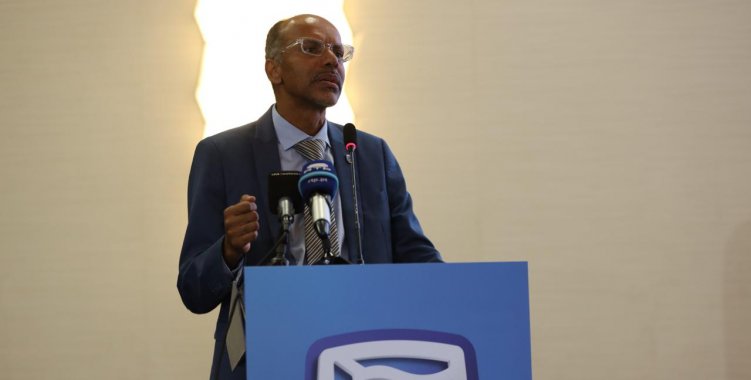According to a statement from the bank sent to VerAngola, "this was one of the main conclusions of the Standard Bank research team", which, this Thursday, presented in Luanda, the I Economic Briefing of 2024, under the theme "Angola: Situation Macroeconomics and Prospects".
On the occasion, Fáusio Mussá, chief economist at Standard Bank for Angola, Mozambique and the Democratic Republic of Congo, said that "on average the world will continue to grow and this is important for Angola", as the country is "very subject to to the volatility of the price of oil".
"On average, the world will continue to grow and this is important for Angola, given that this country is very subject to the volatility of the price of oil, and if there were a global recession, the price of oil would collapse. The prospect of economic growth world is encouraging, as Angola needs the price of oil to remain at current levels", he said.
However, he drew attention to the fact that the country could "grow at a rate below the objectives of the National Development Plan (PDN 2023 - 2027)", adding: "With low investment, Angola faces a high risk of a weak economic growth, below the 3 percent in 2027, defined in the PDN".
In the economist's view, it will be difficult for the country to "mobilize the necessary investments to increase oil production".
"It seems difficult to me for Angola to mobilize the necessary investments to increase oil production. Our scenario foresees stability in oil production, but we cannot foresee a situation in which there is an increase in production. If it remains stable, that is already very good. But even if it remains stable, investment outside the oil sector is necessary. And this investment can be made by the State and the private sector", pointed out Fáusio Mussá, quoted in the statement.
According to the economist, the country "records a major slowdown in foreign direct investment", adding that "the reforms that have been developed have helped to make the regulatory framework more interesting for the oil sector, but there appears to be some inconsistency in policies".
He also said that, this year, "some progress in fiscal consolidation is expected, considering a conservative assumption for the price of oil, and progress in fuel subsidy reform".
Regarding inflation this year, Standard Bank predicts that it will reach a peak in July, of approximately 28 percent, "starting to register a decrease in the following months", adds the note.
Fáusio Mussá also warned of an "insufficiently tight monetary policy, with high growth in the monetary supply in national currency and negative real interest rates".
"Today we have a much lower foreign currency supply than in 2023 and 2022. For this year the forecast is for a monthly supply of 600 million dollars. Last year we had 821 million dollars, which represented a drop of 37 percent compared to to 2022", he added.
However, he highlighted a "positive aspect of macroeconomic management", including "international reserves for eight months of coverage".
"On average, African countries are unable to have four months of coverage. Angola has twice as much, which is positive", he indicated.
Luís Teles, CEO of Standard Bank Angola, speaking at the event, said that "2023 was an extremely difficult year", however, for this year, despite the challenges, there is "some hope that the positive signs that have been observed can bring good news".
"There are positive signs on the horizon, such as the decline in interest rates in international markets, both in the dollar and the euro. There is also an openness from China to make financing conditions more flexible as well as support for priority projects for the country, and a expectation of maintaining the current parameters of the price of a barrel of oil at an international level", said the person in charge, having also highlighted the "continued and reaffirmed support from international institutions such as the IMF and the World Bank".
"We hope that all of this can help create an environment that allows us to achieve higher economic growth this year compared to 2023", he also said, quoted in the statement.
This Thursday's economic briefing – which concerns a "periodic event created in 2018 by Standard Bank" – also had two debates, one on 'Perspective on the Geopolitical and Macro Situation of Angola' and the other on 'Capital Markets'.







